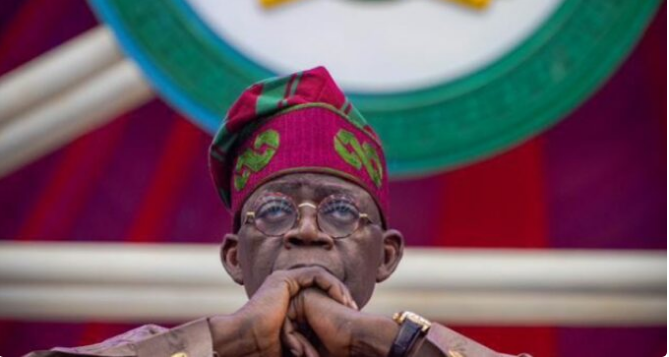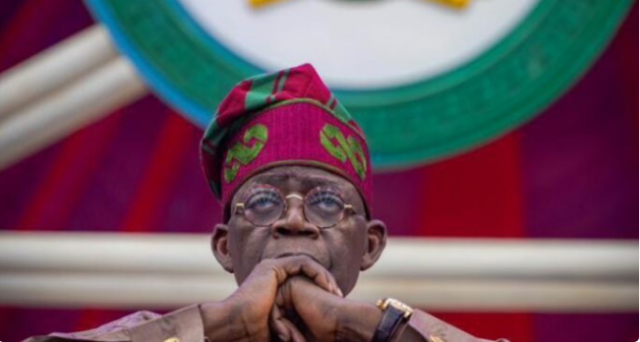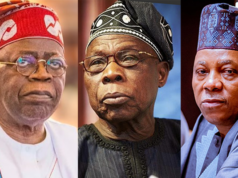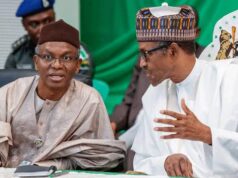 Let me save you some time and answer your questions from the top. Will there be a devaluation of the naira? Yes. When will this be? Soon. My guess is before a new minimum wage is announced. Will there be unification of the foreign exchange markets? That is a different kettle of fish. Let me explain.
Let me save you some time and answer your questions from the top. Will there be a devaluation of the naira? Yes. When will this be? Soon. My guess is before a new minimum wage is announced. Will there be unification of the foreign exchange markets? That is a different kettle of fish. Let me explain.
Meeting with the governors from the All Progressives Congress (APC), President Bola Tinubu restated that his administration will unify the foreign exchange markets. If you are reading this in the future, and you don’t have context for what we are talking about, here’s what we mean: For more than a decade in Nigeria, the dollar and other foreign currencies traded at a certain rate at the Central Bank of Nigeria (CBN) and another rate at another market referred to as the parallel market.
On the day this article was written, CBN authorised dealers sold the dollar at N467, while the same dollar was sold at the parallel market for N750. A difference of N283 on every dollar.
What the new government promised to do is to make the dollar sell for the same price at the CBN, with authorised dealers, and at the parallel market.
WHAT DOES HISTORY TEACH ABOUT FX UNIFICATION?
We have been down this road before. It’s not our first and may not be our last. From 2015 to 2016, Nigeria pretended that the value of the naira to the dollar was N197/$1. The world and our own parallel market were warning that the naira was being kept artificially low, but we insisted that it was N197 per dollar for sixteen months. This deception, with a couple of other economic lies we told ourselves plunged Nigeria into its worst recession in decades.
The day Nigeria (through the CBN) allowed the market to dictate the true value of the naira. In a few hours, the market decided that $1 was worth about N283 — from N197. But despite this huge devaluation of the naira, there was no unification. The parallel market simply traded between N334 and 345 per dollar.
So how’s unification achieved?
From N334 to the dollar at the parallel market in 2016, the naira depreciated as badly as N520 per dollar in February 2017. But to deal with the issue, the CBN created an investors and exporters FX window. This I&E window did not go by the CBN fixed dollar rate. The market was allowed to determine the price. The market put the price around N360 per dollar.
So local and foreign businesses who needed dollar and could not get from the CBN, where the rate was N305 per dollar, simply went to the banks and requested dollar at N360 and they got it. In no time, the banks became the major dealers in forex again. So businesses did not need to go to the black market to buy at N520. Demand at the parallel market dropped drastically, leading to a glut in the market.
As basic economics teaches, the naira began to recover, and by December 2017, the naira was trading between 360 and 364 at the parallel market and at the I&E window. As far as Nigerians were concerned, unification was achieved.
Caveat: Unification was not totally achieved because major oil marketers still got dollars at the CBN rate of N305 per dollar — to keep the pump price of petrol artificially low for Nigerians. Win-win?
WHAT DOES TINUBU’S FX UNIFICATION MEAN FOR YOU?
It is absurd that the president is now dictating or strongly suggesting monetary policy. But as former president Muhammadu Buhari said the CBN is following “a model outside of the economic orthodoxy,” an alternative economic model that “puts people at the heart of policy”. I digressed.
I have reported Nigeria’s monetary policy for roughly 10 years now, and through those years, before unification, there’s devaluation. Beyond my reporting, basic economics and economic history across the world hold the same. So the new administration will devalue the naira to encourage inflow of forex/investments as the country does not have enough forex to keep dollar at N461.
I did not mention it earlier, but in 2017, Nigeria was able to keep forex rates steady because we also had great FX inflow. Transactions at the I&E window were in excess of $5 billion in just a few months. Our Eurobond offers were oversubscribed by over 600% — we needed $1 billion, but investors brought $7.8 billion. Not sure we have that luck in 2023.
Based on the recent adjustment in fuel prices, my calculations suggest naira may go anywhere between 550 to 650 per dollar on the official side. And as we saw in 2017, the parallel market will experience reduced demand, then the glut will set in, and the rates will recover from 750 per dollar to wherever the official rate settles.
For the ordinary Nigerian, not much will change — most goods and services are currently priced at the parallel market rate. If anything, prices should come down, but it’s Nigeria, and this is unlikely to happen.
Students and businesses filling Form A and Form M to get FX to study abroad or import goods and services will get all the dollars they need, but not at N461. This will be at the new rate.
For airlines and other businesses who have their monies stuck in Nigeria because there’s no dollar to repatriate the funds back home, you will get your funds. But if I am the CBN or the federal government, I’m paying you back at the old rate (N450 to N461) because the new rate will mean we are gifting you extra millions of dollars that our economy direly needs.
For states and state governors, devaluation and unification will mean more money to share at FAAC meetings, especially to pay the new minimum wage if and when approved.
If we can keep the rates steady and encourage the inflow and outflow of investors’ funds, this will mean more investments in Nigeria and jobs for the Nigerian people. International businesses going to Ghana for fear of inability to repatriate funds from Nigeria will return to Africa’s powerhouse.
You can reach ‘Mayowa on Twitter @OluwamayowaTJ







